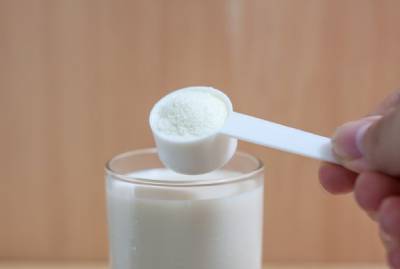
Proteins for Muscle Gain
Introduction to Protein for Muscle Building
Protein is essential for muscle growth. It plays a key role in repairing and building muscle tissue, which is crucial for those looking to increase their muscle mass. In this article, we’ll explore in detail everything you need to know about protein for muscle gain, including the types of protein, how to consume it, and the benefits it offers.
Why Protein is Important for Building Muscle
Protein is made up of amino acids, which are the building blocks of muscle. When you exercise, your muscles experience micro-tears. Protein helps repair these tears and build stronger, bigger muscles. Without adequate protein, it’s difficult to see significant muscle gains.
Types of Protein for Muscle Gain
Whey proteins
Whey protein is one of the most popular proteins for muscle gain. It is quickly absorbed by the body, making it an excellent choice for post-workout consumption. It contains all the essential amino acids needed for muscle growth.
Casein proteins
Casein is a slow-digesting protein that is ideal for consumption before bed. It provides a continuous supply of amino acids to muscles throughout the night, which aids in muscle recovery and growth.
Plant proteins
For those following a vegetarian or vegan diet, there are many plant-based muscle building proteins, such as pea protein, rice protein, and hemp protein. These are also high in amino acids and can be just as effective as animal proteins.
Egg proteins
Egg protein is another great source of protein for building muscle. It is easy to digest and contains all the essential amino acids. Egg whites, in particular, are low in calories and high in protein.
How to consume protein to gain muscle
Amount of protein needed
The amount of protein you need to gain muscle depends on several factors, including body weight, activity level, and fitness goals. In general, it is recommended to consume between 1.2 and 2.2 grams of protein per kilogram of body weight per day to promote muscle growth.
Timing of consumption
The timing of protein consumption is also important. It is beneficial to consume protein before and after training to maximize muscle protein synthesis. A high-protein snack before bed can also aid in nighttime recovery.
Combination with carbohydrates
Pairing protein with carbohydrates can improve protein absorption and provide the energy needed for intense workouts. Carbohydrates help replenish glycogen stores, which is essential for performance and recovery.
Benefits of Protein for Muscle Gain
Increased muscle mass
The most obvious benefit of protein for muscle gain is increased muscle mass. Protein provides the amino acids needed to repair and build muscle, which helps you gain size and strength.
Reduction of body fat
Eating enough protein can also help reduce body fat. Protein increases satiety, which can reduce overall calorie intake. Plus, it requires more energy to digest, which increases metabolism.
Improved recovery
Protein for muscle gain improves recovery after training by repairing damaged muscles and reducing muscle soreness. This allows you to train more frequently and with greater intensity.
Support for overall health
Protein also plays a role in overall health. It is needed for the production of enzymes, hormones, and other molecules important for the proper functioning of the body. It also contributes to bone health and the immune system.
High Protein Foods for Muscle Building
Lean meats
Lean meats like chicken, turkey, and beef are great sources of protein for building muscle. They are rich in amino acids and also provide essential vitamins and minerals.
Fish and seafood
Fish like salmon, tuna, and trout are high in protein and omega-3 fatty acids, which are beneficial for heart health and muscle growth. Seafood like shrimp and scallops are also good sources of protein.
Dairy products
Dairy products like milk, yogurt, and cheese are great sources of protein for building muscle. Milk, in particular, contains whey and casein, making it an ideal option for post-workout recovery.
Legumes and nuts
Legumes like lentils, chickpeas, and black beans are high in protein and fiber, making them ideal for a muscle-building diet. Nuts and seeds, like almonds and chia seeds, are also great sources of plant-based protein.
Eggs
Eggs are a complete and highly digestible source of protein. They contain all the essential amino acids needed for muscle growth. Eating eggs for breakfast or as a snack is a great way to increase your protein intake.
Conclusion
In conclusion, protein for muscle gain is essential for anyone looking to increase muscle mass and improve physical performance. By choosing the right protein sources and consuming them at the right times, you can maximize your muscle gains and support your overall health. Remember to tailor your protein intake to your individual needs and consult a healthcare professional or nutritionist for personalized advice. By combining a protein-rich diet with a regular exercise program, you can achieve your goals in a healthy and effective way.



Leave a comment
This site is protected by hCaptcha and the hCaptcha Privacy Policy and Terms of Service apply.